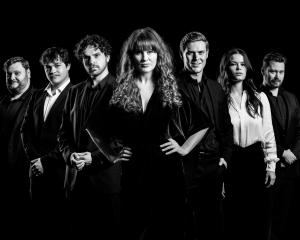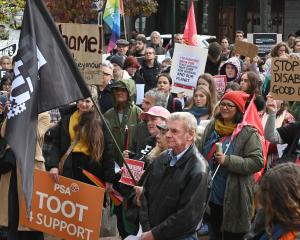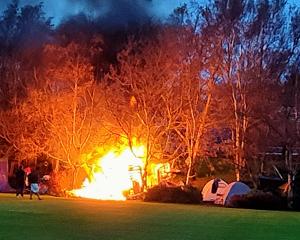In 2001, the University of Otago launched a postgraduate diploma in natural history film-making and communication after it realised there was an opportunity to strengthen the relationship between the university and Natural History New Zealand.
Back then, the Centre for Science Communication's inaugural class comprised a dozen students, graduates of university biological and science programmes who were given a year-long ''crash course'' in film-making.
Some 14 years on, the centre offers a range of options, including three separate ''streams'': science and natural history film-making, creative non-fiction writing in science, and popularising science (or, from next year, science and society). And more changes are looming.
''We have made our course offerings more flexible,'' Nancy Longnecker, acting director of the centre, said.
''There may be people working full-time or part-time who have some experience in the industry and are looking to fill some gaps in their knowledge.''
There will be a postgraduate certificate (full-time, one semester), a postgraduate diploma (full-time, one-year), a new master of applied science, which involves the course-work and creative components but not the academic thesis (three semesters, full-time), as well as the current two-year master's and PhD-level courses.
''We definitely have people who don't come from an academic science background, although they obviously have a keen interest in communicating science,'' Prof Longnecker said.
''Some of the best science communicators around are basically self-taught.
''At a previous university, one of my best students was actually a librarian. He had no formal science education but had no problem with that course.''
Ali Rogers is coming to the end of two years' study at the centre.
Having completed a bachelor of science (zoology and ecology) degree, she realised the importance of effectively communicating scientific knowledge.
''I really wanted everybody to be as in love with the natural world as I was.
''The science communication centre was a dream come true for me. I liked sciences at high school but also enjoyed art as well. I thought I needed to go down the sensible, sciences road at university in order to get a job. But science communication lets me combine the creative with the scientific.''
Ms Rogers' master's thesis focuses on wider collaboration between such institutions and the public.
Titled ''Community Co-Creation of Museum Exhibitions'', it examines a new paradigm in what was once the sole domain of curators.
''The public has a greater role in curating museum exhibitions. It's about having equal power in how an exhibit is developed.''
Ms Rogers says such an approach is mutually beneficial.
''The end product is different to what the museum could have created on its own. And because the community works so hard towards the exhibition, people are more invested in the museum.''
Ms Rogers is staging her own exhibition at Toitu Otago Settlers Museum.
Called ''Otago Harbour Community Caretakers'', it runs until October 28 and dovetails into the museum's ''Life on the Edge'' exhibition.
''I also work at Otago Museum, which is why my thesis has taken this turn. I'd love to stay in this field, curating exhibitions and bringing more effective science communication to museums.''
The 23-year-old says the skills she has developed over the past 20 months have opened her eyes to a range of career possibilities.
''It's so exciting. There are so many options. It's not like graduating from medicine and knowing you're going to be a doctor. You could do anything from advising a local council about the science behind potential decisions, to writing, to working in a big business ... There are lots of opportunities.''
Advertisement













